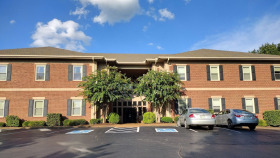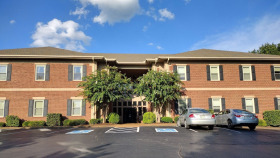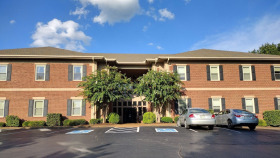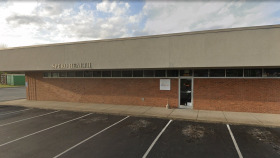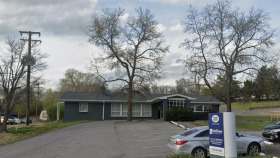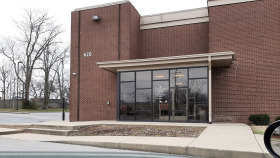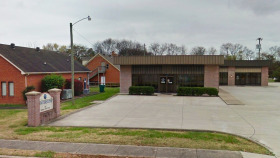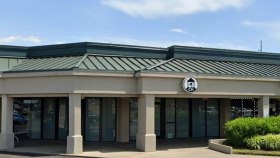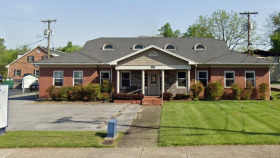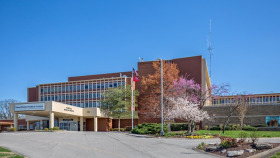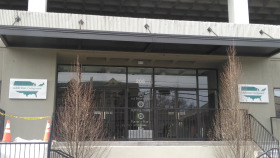Alcohol and Drug Abuse Statistics in Hendersonville, Tennessee
Agencies such as the CDC and the Tennessee Department of Health release annual reports that shed light on the state of substance abuse in Hendersonville:2,4,5
The rate of alcohol-related overdoses, on the other hand, increased by 28% during the same time.
In Sumner County, over half of residents (55%) are prescribed opiate medication.
Levels of Care for Rehabs in Tennessee
To meet diverse treatment needs, several levels of addiction treatment are available.
Detox
Detox is the process of safely and comfortably clearing your system of all drugs and alcohol. It occurs in a supervised setting, to manage withdrawal symptoms and allow you to move forward with recovery services.
Residential or Inpatient
Residential or inpatient treatment involves receiving 24/7 care while you live at a rehab facility. Treatment methods include individual, group, and family therapy. Additional methods may include medication, recreational therapy, and other holistic therapies.
Partial Hospitalization Programs (PHPs)
Partial Hospitalization Programs usually provide similar treatments as inpatient services, but you only stay at the facility during treatment times, then return home.
Intensive Outpatient Programs (IOPs)
A step down from PHPs, IOPs often serve as a transition from PHPs to outpatient treatment. IOPs provide several hours of treatment over several days per week. Treatments often include individual and group therapy.
Standard Outpatient
Standard outpatient programs are the least intensive treatment option. They involve two to three hours of care per week, typically at an outpatient clinic or a therapist’s office.
Aftercare
Aftercare provides follow-up and ongoing support after you complete an inpatient or outpatient program. It may include 12-step meetings and continued therapy, with the goal of relapse prevention.
How to Pay for Addiction Treatment in Hendersonville, Tennessee
Private Insurance
Tennessee residents are protected under the federal Mental Health Parity and Addiction Equity Act. This law requires all insurance companies to provide at least some coverage for substance abuse treatment. However, plans differ regarding specific coverage, and copays and deductibles may apply.
Tennessee Medicaid
TennCare is Tennessee’s Medicaid program. It provides healthcare coverage for Tennessee residents who are parents or caretakers of a minor, pregnant, elderly, or have a disability. To qualify for Medicaid, residents must meet income and resource limits.4
Tennessee Medicare
Medicare provides healthcare coverage for Tennessee residents 65 and older and those with certain disabilities. This government program includes coverage for addiction treatment under various plans. However, not all rehab facilities accept Medicare as a method of payment. The Tennessee State Health Insurance Assistance Program (TN SHIP) provides free counseling and assistance to Tennessee residents who qualify for Medicare, to help them understand and access these benefits.
TRICARE in Tennessee
TRICARE in Tennessee provides health insurance coverage, including coverage for addiction treatment, for military personnel, veterans, and their families.
Sliding Scale Rehabs
Tennessee residents who attend a sliding scale rehab program pay only what they can afford based on their income. To qualify, they must provide proof of income when applying for treatment in Tennessee.
IHS-Funded Drug Rehabs
The Indian Health Service (IHS) is a health program for indigenous people, funded by the federal government. The program offers free or low-cost SUD treatment for Native Americans and Native Alaskans.
Getting to and Around Hendersonville, Tennessee
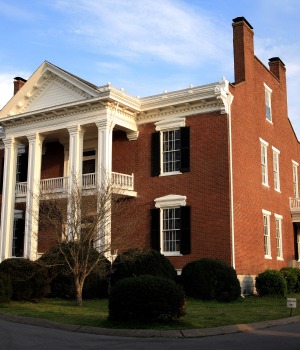
When you want to visit Hendersonville to attend rehab yourself or be with a loved one in treatment, you’ll find a variety of ways to get there and many things to do when you arrive:
- A short 25-minute drive gets you to Hendersonville from the Nashville International Airport (BNA). You can also take the RTA (Regional Transportation Authority) Route 92, which runs to the city from Downtown Nashville three times each weekday, and to Nashville from Hendersonville twice a day.
- There are dozens of places to go for alcohol and drug rehab in Hendersonville, including detox, inpatient, and outpatient services that accept Medicaid and Medicare. For example, Behavioral Health Group (BHG), operates an accredited rehab center in the city with treatments such as behavioral therapy and medication-assisted treatment (MAT) for opiate use disorder (OUD).
- The Rockland Recreational Center is one of the city’s larger parks, with waterfront space to lounge on a sunny day as well as covered areas. You can also take a trip to the Historic Rock Castle, or Huckabee Theater, formerly Trinity Music City, for free and low-cost family-friendly entertainment.
- Seven malls and shopping outlets are in the city, as well as five grocery stores and three discount retail outlets, including Dollar Tree and Dollar General.
Tennessee Drug and Alcohol Laws
Tennessee law includes the following policies regarding substance use and addiction treatment:1,2,3,4
Good Samaritan Overdose Prevention Act: Passed in 2014, this law centers on the opioid overdose antidote, naloxone. The law includes four key components:
- Provides immunity from civil suits to those who prescribe naloxone
- Allows the Department of Health to provide training on naloxone use
- Grants civil immunity for administering naloxone to someone who appears to be overdosing on an opioid
- Requires Tennessee residents to receive basic instruction on how to administer naloxone, in order to be protected by this law
Tennessee Naloxone Distribution: Enacted in March 2022, Public Chapter 749 increased access to naloxone in Tennessee. The law allows organizations such as schools, homeless shelters, recovery organizations, and hospitals to prescribe and distribute naloxone. It also allows health care practitioners to prescribe naloxone to individuals at risk of an overdose as well as to family and friends of those at risk.
Adult Drug Court: This law protects Tennessee residents who seek medical assistance for a person who is experiencing a drug overdose, as well as the person who is experiencing the overdose, from arrest, charge, or prosecution for simple possession. The law is designed to prevent overdose deaths by removing fear of legal repercussions when calling 911.
Tennessee Drug Treatment Instead of Incarceration Act: This bill allows nonviolent drug offenders to participate in a rehab program instead of serving jail time. If they successfully complete treatment, the court will dismiss the charges.
Resources
- United States Census Bureau. (March 17, 2022). American Community Survey 5-Year Data (2009-2020).
- Center for Disease Control. (2022). CDC Wonder Tool.
- Substance Abuse and Mental Health Administration. (2022). Treatment Locator Tool.
- Center for Disease Control. (2022). U.S. County Opioid Dispensing Rates, 2020.
- Tennessee Department of Health. (March 2021). 2021 TN Annual Overdose Report.


